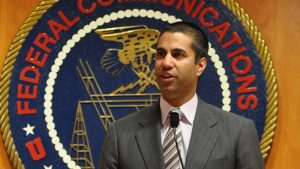The State of Maryland Department of Human Services (DHS) is making big strides in a two-year campaign to create an AWS-powered technology environment that will integrate the state’s health and human service applications to more effectively deliver services to state residents.
The National Association of State Chief Information Officers (NASCIO) announced today that it endorsed S. 1846, the State and Local Government Cybersecurity Act of 2019.
Indiana University (IU) announced July 2 it is establishing the IU Cybersecurity Clinic that will address cyber threats with an emphasis on state and local organizations. IU said the clinic, which will serve as a Midwest hub for cyber training, is the only one of its kind focused on state and local cybersecurity.
California’s most populous county is realizing a whopping 60 percent cost saving several months after it switched from traditional call center infrastructure to Amazon Connect’s cloud-based contact center solution.
The State of Kansas is working to meet residents where they are by delivering services through a single mobile app. Leveraging the power of the cloud, they are able to provide services from multiple departments and enhance the citizen experience.
The Tennessee Department of Human Services (DHS) is redefining customer service at the state level, following a state-wide process improvement and modernization initiative.
Lake City, Fla., is the latest city to pay the ransom following a ransomware attack.
In Washington D.C.’s cybersecurity community (and the entirety of Federal IT), the Continuous Diagnostics and Mitigation (CDM) program is well known and evolving – a bold and necessary effort to centralize the management of cybersecurity tools, services, and reporting across the entire Federal civilian enterprise. Just four hours down Interstate 95, where CDM is not so well known, the government of North Carolina is making a strong case for state-level adoption of the CDM model to create greater network visibility and strengthen cybersecurity across the state system.
Federal Communications Commission (FCC) Chairman Ajit Pai on June 17 announced formation of a new agency task force aimed at putting more broadband service to work to advance precision agriculture.
Sens. Gary Peters, D-Mich., and Rob Portman, R-Ohio, introduced the State and Local Government Cybersecurity Act on June 18.












